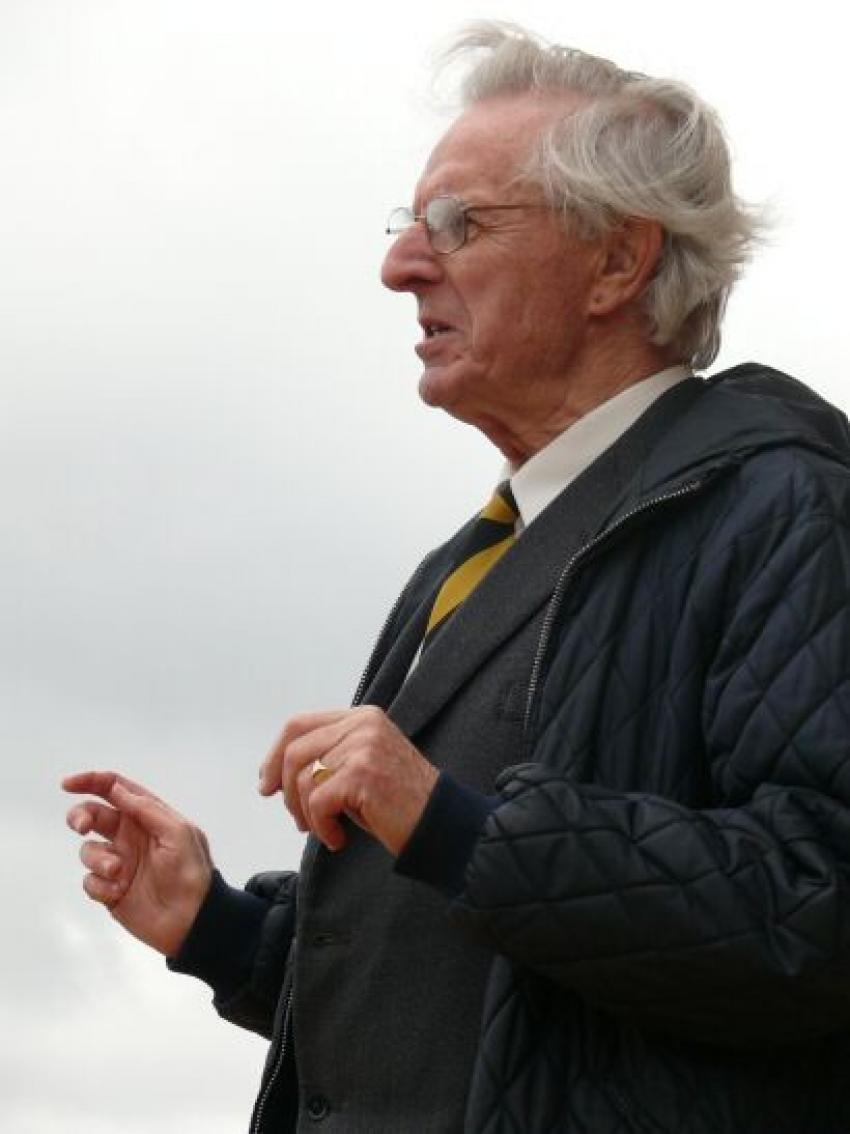The Royal Astronomical Society offers its sincere condolences to the family, friends and colleagues of Professor Sir Arnold Wolfendale, who has died at the age of 93.
Professor Wolfendale completed his PhD at the University of Manchester in 1953, where he began his lifelong and pioneering research into cosmic rays, very high energy atomic particles detected in space and at high altitude, or on the ground through the shower of secondary particles they create. His achievements include measuring the energy spectrum of cosmic rays, and gaining an understanding of their distribution on the sky.
Moving to the University of Durham in 1956, he built up the astronomy department to become one of the strongest in the UK. He collaborated with scientists across the world, including in the Eastern bloc countries during the Cold War.
In 1977 Professor Wolfendale was elected a Fellow of the Royal Society. From 1981 to 1983 he was President of the Royal Astronomical Society, and he served as Astronomer Royal from 1991 to 1995, after which he received a knighthood. In these roles he argued for more funding for astronomy, and pushed for the reform of what was then called ‘public understanding of science’ to broaden its appeal.
The current President of the Royal Astronomical Society, Professor Emma Bunce said:
“Arnold Wolfendale was a legendary figure. He was a central part of the postwar generation of scientists who moved beyond traditional optical telescopes to exploit new ways of understanding the wider universe. His pioneering inventions of instrumentation to detect and measure the properties of cosmic rays has had a profound impact on astronomy. His legacy goes well beyond academic research and he served our community exceptionally well through his wider leadership.”
Media contacts
Dr Robert Massey
Royal Astronomical Society
Tel: +44 (0)20 7292 3979
Mob: +44 (0)7802 877 699
press@ras.ac.uk
Dr Morgan Hollis
Royal Astronomical Society
Mob: +44 (0)7802 877 700
press@ras.ac.uk
Notes for editors
The Royal Astronomical Society (RAS), founded in 1820, encourages and promotes the study of astronomy, solar-system science, geophysics and closely related branches of science. The RAS organises scientific meetings, publishes international research and review journals, recognises outstanding achievements by the award of medals and prizes, maintains an extensive library, supports education through grants and outreach activities and represents UK astronomy nationally and internationally. Its more than 4,000 members (Fellows), a third based overseas, include scientific researchers in universities, observatories and laboratories as well as historians of astronomy and others.
The RAS accepts papers for its journals based on the principle of peer review, in which fellow experts on the editorial boards accept the paper as worth considering. The Society issues press releases based on a similar principle, but the organisations and scientists concerned have overall responsibility for their content.


